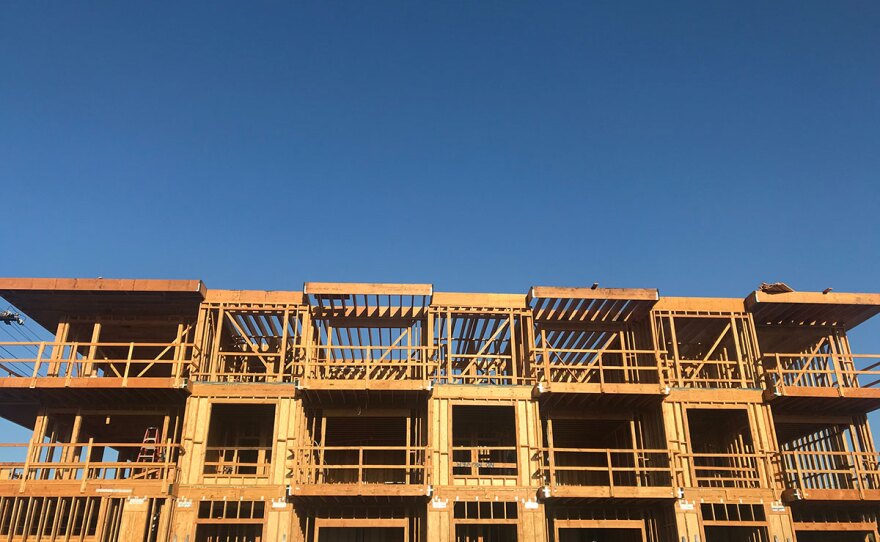The San Diego City Council Tuesday approved changes to the city's affordable housing regulations after striking a compromise with business and developer groups.
The update is a significant victory for Council President Georgette Gomez, who authored the new law that requires developers make 10% of the homes they build available to low-income renters. Her first so-called "inclusionary housing" proposal passed council last summer but was vetoed by Mayor Kevin Faulconer.
The more recent version, which softened some of the requirements on developers, passed with a veto-proof majority of seven votes.
Gomez and several supporters of the measure stressed that inclusionary housing was not a panacea for the city's severe lack of affordable housing, but rather just one tool at the city's disposal.
"Is this the solution? No, it isn't," she said. "We need to do much more to really ensure that we are housing all San Diegans."
Gomez's original proposal required developers to set aside 10 percent of the homes they build for households making 50% of the area median income — or $53,500 for a family of four — and charge them affordable rents. Developers could opt out of that requirement by paying a fee of $22 per square foot, with those fees dedicated to building affordable housing elsewhere in the city.
RELATED: Proposed Update To City’s Affordable Housing Policy Would Change Equation For Developers
The city's current inclusionary housing policy sets the affordability threshold at 65% AMI, and the "in-lieu" fee is around $12.
A coalition of groups, including the Building Industry Association (BIA) of San Diego and the San Diego Regional Chamber of Commerce, successfully fought the proposal saying it would stifle development at the worst possible time when home building is already dropping and rents and home prices continue their upward march.
The compromise that passed Tuesday sets the income threshold for the affordable units at 60% AMI, meaning developers can charge slightly higher rents for those units than they would have under the initial proposal. But the "in lieu" fee to opt-out of the affordable housing requirement was raised to $25 per square foot. The fee will also increase more gradually, over five years instead of three.
Those changes were enough to satisfy the BIA and the Chamber of Commerce. Council members Mark Kersey and Vivian Moreno also changed their votes to support the new proposal.
"Let's keep this going, work on more reforms in the coming years and really attack the housing crisis," said Matt Adams of the BIA.
The changes didn't go far enough to sway the council's two Republicans, Chris Cate and Scott Sherman, who again voted against the measure Tuesday. Sherman said he was fundamentally opposed to raising fees on developers when San Diego is already not producing enough housing.
"A slightly less painful compromise is still bad policy," Sherman said.







